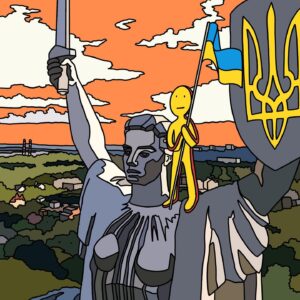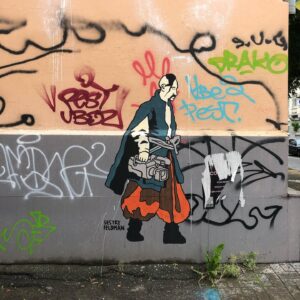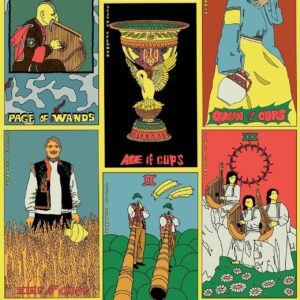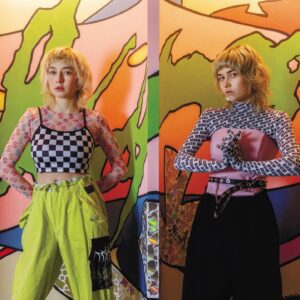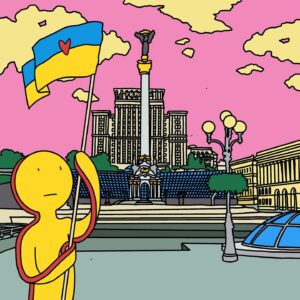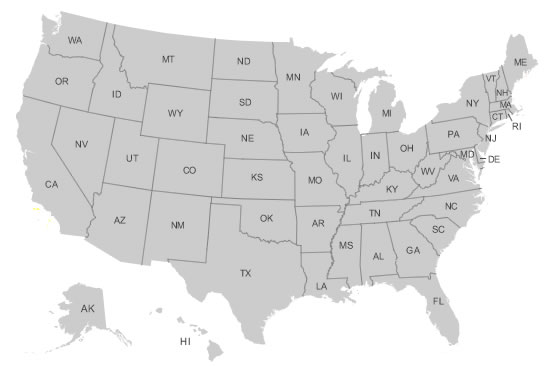By Christopher Moore, APA, Kyiv
“The bodyguard of our former President Leonid Kuchma leaked the tapes where one could hear Kuchma giving the command to destroy my father Boris Feldman. This was the same set of recordings where the order was given to silence the journalist Georgiy Gongazde –– leading to Gongazde being kidnapped and decapitated. At the same time, my dad was arrested, then sentenced to ten years in prison.”
She giggles as my jaw drops in disbelief, and continues: “At the hearing, most of the original charges were dropped, as there was not any evidence, but one charge remained: They claimed he stole from the bank that he owned at the time. It’s not true, it doesn’t make sense, either. How do you prove the owner stole from his own bank instead of earning it? But because that order was given, they found some way to prosecute him. The authorities took him away when I was four years old. Over the following years, I had no contact with him, and my mother hid the truth of what happened from me and my sister Nicole. I only knew my father through photographs in our home — he was like a religious icon on the wall.”
“When I was eight years old, he got out of prison, but upon seeing him in the flesh for the first time, I froze. I didn’t know how to call him. (In Russian, one can use the familiar “ты” [ty] or formal ”вы” [vy] to say “you”, similar to French with tutoyer or vouvoyer).

Boris Feldman

Michelle's Mother and brother
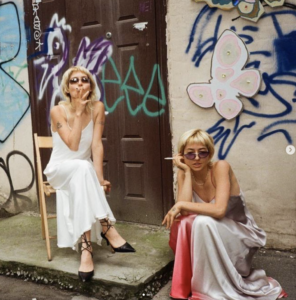
Michelle and Nicole Feldman, Kyiv, June 2022.
Without much ado, 25-year old Ukrainian artist Michelle Feldman, reveals that her father was one of the victims in the infamous “Cassette Scandal” (Ukrainian: Касетний скандал; also known as Tapegate or Kuchmagate) of November 2000–in which Ukrainian President Leonid Kuchma was caught on tape ordering the months-earlier kidnapping of journalist Georgiy Gongadze, whose decapitated corpse had recently been found and because of reasons that still remain unclear, her father, Boris Feldman, was also imprisoned by the Interior Ministry and local authorities in her hometown of Dnipro, acting on the same set of orders recorded and released by Kuchma’s bodyguard.
“Kuchma was backed by Putin. His oligarch mafia and Ukraine was still very corrupt back then”, she says as she smokes a cigarette in between sips of her coffee on the sidewalk in Kyiv at a café that has a similar aesthetic to the cafés that artists frequent in New York City. She explains, “My father’s bank, Slavyanksi, didn’t play the same corruption game that comes with doing business in Ukraine, and Gongazde highlighted this, so I believe they targeted my father, too.”
This article was supposed to be about how Ukrainian artists are responding to the war. We attended an open air performance commemorating the 100 days of the invasion with 100 black sunflowers attached to what looked like stalks of barbed wire (an audience participation piece by conceptual artist Taya Kabaeva). Moments afterwards, I learned about her family’s direct connection to the one of the main political events in Ukraine’s post-independence history, leading to the rise of former President Viktor Yuschenko, Ukraine’s then Prime Minister, and the Orange Revolution, where a new generation protested against election fraud and a corrupt government with hopes of turning West and joining European democracy as the internet brought independent journalism to a people that was trying to move past the Soviet way of doing business. The journalist Georgiy Gongadze was targeted by Kuchma because he had founded Ukrayinska Pravda, “Ukrainian Truth”, an online newspaper known for hard-hitting articles about corruption and politics in Ukraine that had started only months earlier on 16 April 2000, the day of the Ukrainian Constitutional referendum.
Michelle tells me her father turned away from public life and “has become very religious, renewing his Jewish faith — he observes the Sabbath and goes to the synagogue. Recently, he has focused on adventure, spending his time on building mobile homes, so he can use them for traveling”. And because he didn’t trust that same government system to educate his children, Michelle grew up home-schooled, along with her fraternal twin sister Nicole, who is also an artist. The duo run their instagram account @sestry_feldman, taking on creative projects like designing tarot cards with Ukrainian cultural symbols. Her older brother Rob is also working in the creative field as an actor, although because of the recent Russian offensive, he is now acting as a fixer for news crews back East.
Michelle tells me she was happy when the Ukrainian volunteers, like Azov, rushed to defend the nation against the Russian invasion in 2014, as the Ukrainian military was gutted by the previous president Victor Yanukovych, who was also backed by Putin and his henchmen. She saw the war as a chance to rid her country of the corrupt Russian mafia that not only imprisoned her father, but also ruled the country, often in secret, despite Ukraine’s independence, and the fall of the Soviet Union.
During that first invasion, after US President Barack Obama declined to arm Ukraine, her hometown of Dnipro emptied out as people fled the Russian invasion. Seven percent of Ukraine’s territory was colonized by Russia in the negotiated ceasefire brokered by foreign governments. Like many affected by the war, she also moved West to Kyiv, not because of the war, she says, but because the city had become empty. There was nothing to do to stimulate her mind and artistic ambitions.
In Kyiv, she led a modern, bohemian lifestyle, free from concerns about politics, where she focused on her art and her circle of friends pursuing their artistic dreams in the city, when, like her father, “politics became interested in her” once Russians invaded her homeland, again, over three months ago — this time attacking Kyiv as well. She fled back East to Dnipro to rejoin her family, as it was initially safer than Kyiv, but has since returned to Kyiv, where she intends to stay. Although the city feels empty at times, with far fewer people than before, the people who have remained are dedicated to rebuilding the damaged parts of the country and to forging a new cultural identity that is free of Russian influences. Here in Kyiv, she feels energized along with the local artistic community: “I can feel something special happening here, especially among the young.”
“Some people are addicted to bad news, like the old folks glued to the television,” Michelle noted. “They are like the Russians who seek out the negative. It makes them numb, so that they don’t do anything, and justify it by telling themselves that nothing will ever change. It’s sort of like a widespread societal depression”.
With an optimism that defies explanation, she spends her time making art, keeping up with politics, getting engaged in activism where she, along with her friends, uses art to communicate what her people are going through — hoping that the medium will keep the world interested this time. Since a steady stream of bad news renders the viewer numb, she is looking for some way of getting through to the outside world that has seemed indifferent to the plight of East Ukrainians for her entire life.
That afternoon, the Feldman sisters paint a mural of the Ukrainian trident symbol with the word “FREEDOM” in pink and yellow, as satellite dishes behind them appear to beam the message to whomever will listen. That night, in the early morning hours, Russians would attack Kyiv with missiles, for the first time in weeks, destroying a train depot used to transport grain to feed the world — wounding one civilian. In defiance of the Russian missiles, while the streets are patrolled by the Ukrainian police, the sisters go out onto the streets, breaking the military curfew, and paint another mural, this time incorporating images of grain stalks to the sound of blaring air raid sirens.
Michelle and Nicole Feldman, Kyiv


